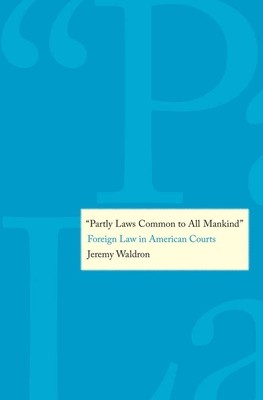
- We will send in 10–14 business days.
- Author: Jeremy Waldron
- Publisher: Yale University Press
- ISBN-10: 0300148658
- ISBN-13: 9780300148657
- Format: 16.3 x 23.6 x 3.1 cm, kieti viršeliai
- Language: English
- SAVE -10% with code: EXTRA
Reviews
Description
Should judges in United States courts be permitted to cite foreign laws in their rulings? In this book Jeremy Waldron explores some ideas in jurisprudence and legal theory that could underlie the Supreme Court's occasional recourse to foreign law, especially in constitutional cases. He argues that every society is governed not only by its own laws but partly also by laws common to all mankind (ius gentium). But he takes the unique step of arguing that this common law is not natural law but a grounded consensus among all nations. The idea of such a consensus will become increasingly important in jurisprudence and public affairs as the world becomes more globalized.
EXTRA 10 % discount with code: EXTRA
The promotion ends in 23d.19:58:53
The discount code is valid when purchasing from 10 €. Discounts do not stack.
- Author: Jeremy Waldron
- Publisher: Yale University Press
- ISBN-10: 0300148658
- ISBN-13: 9780300148657
- Format: 16.3 x 23.6 x 3.1 cm, kieti viršeliai
- Language: English English
Should judges in United States courts be permitted to cite foreign laws in their rulings? In this book Jeremy Waldron explores some ideas in jurisprudence and legal theory that could underlie the Supreme Court's occasional recourse to foreign law, especially in constitutional cases. He argues that every society is governed not only by its own laws but partly also by laws common to all mankind (ius gentium). But he takes the unique step of arguing that this common law is not natural law but a grounded consensus among all nations. The idea of such a consensus will become increasingly important in jurisprudence and public affairs as the world becomes more globalized.


Reviews